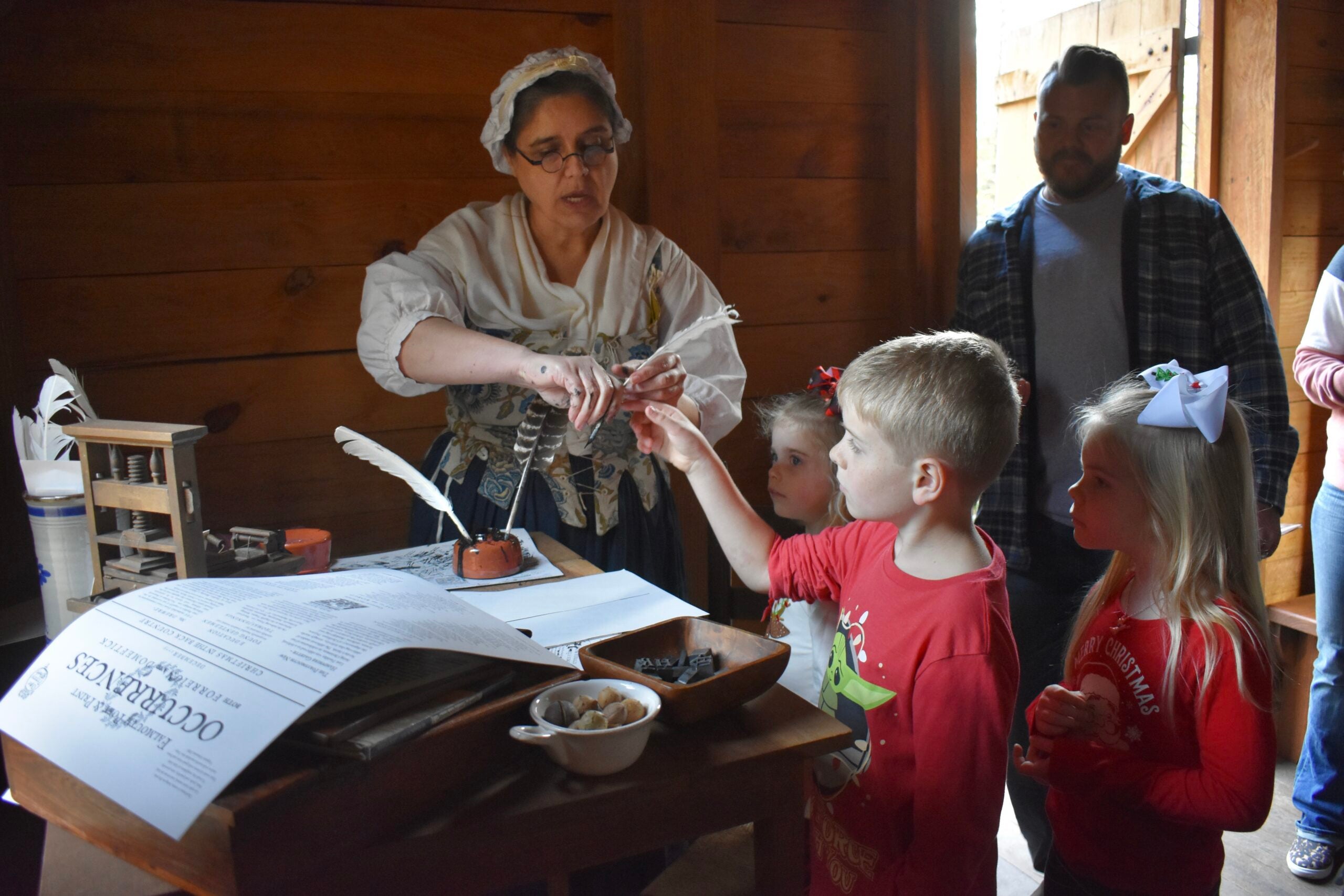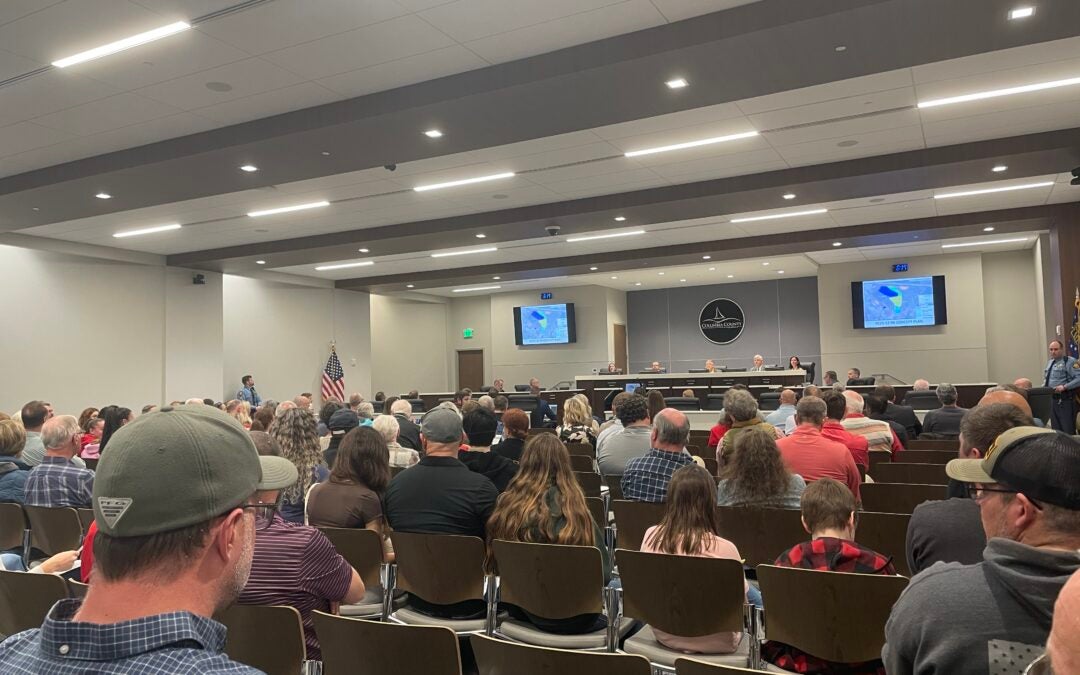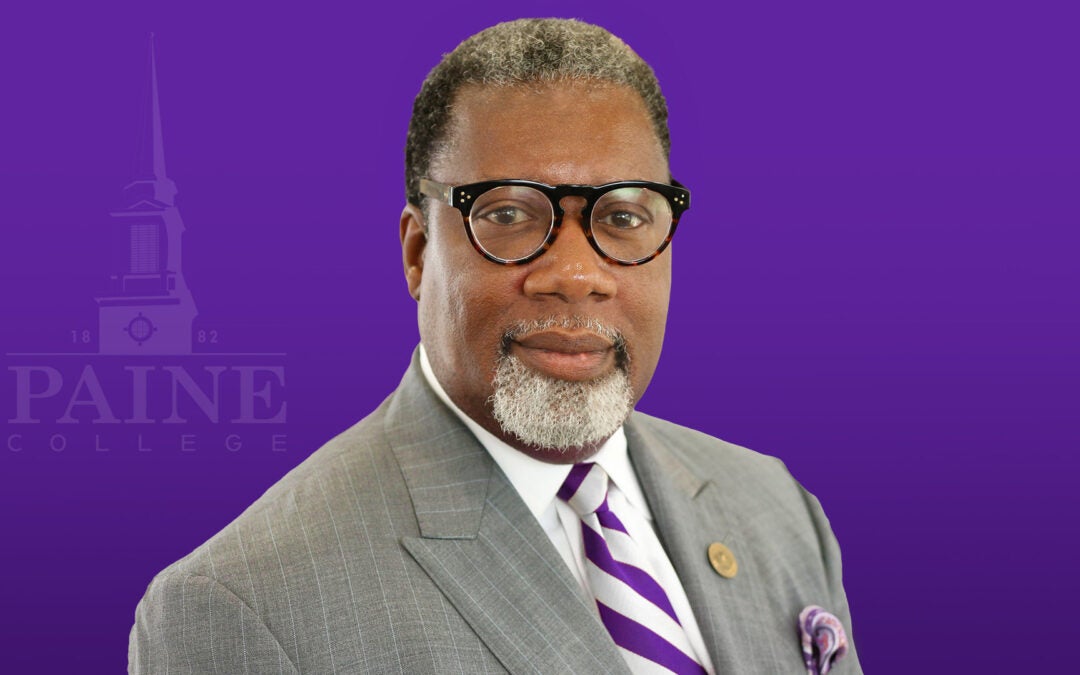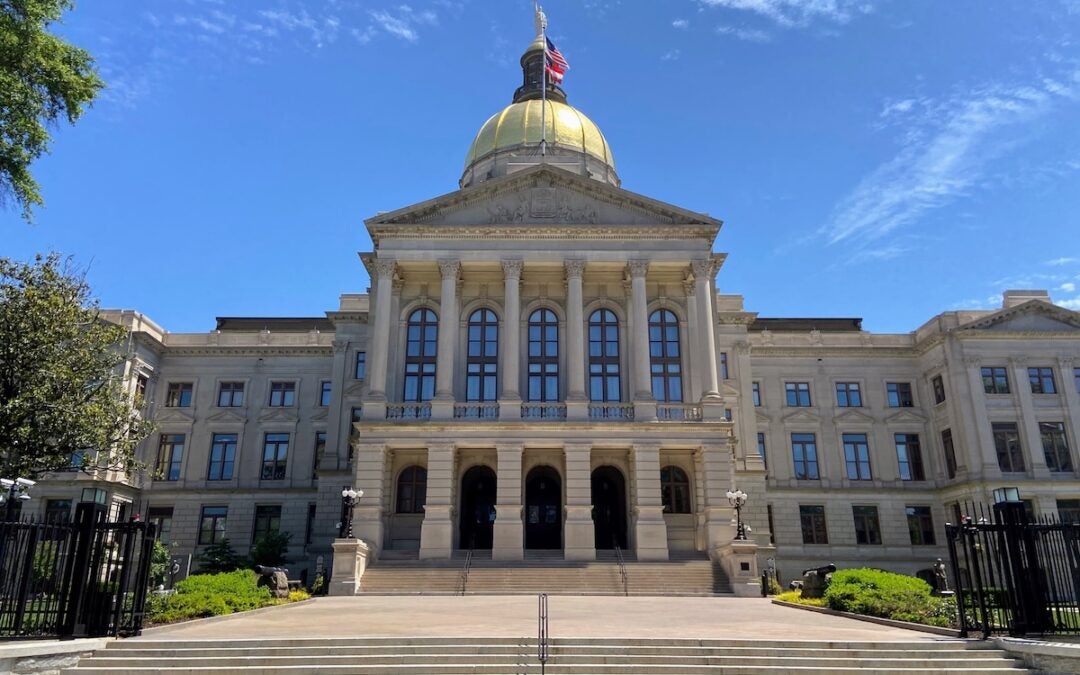Inviting families to step back in time and celebrate Christmas in colonial times, Living History Park opened its gates on Saturday, Nov. 25, for dozens of patrons to enjoy a day of holiday fun.
Hosting Christmas in the Backcountry, an annual event which showcases the various holiday traditions and skills utilized in colonial times, Living History Park characters demonstrated various activities and trade specialities.
Located in North Augusta at 299 W. Spring Grove Ave., and offering free entrance to all, Living History Park is made possible by government grants, donations and the dedication of its many volunteers.
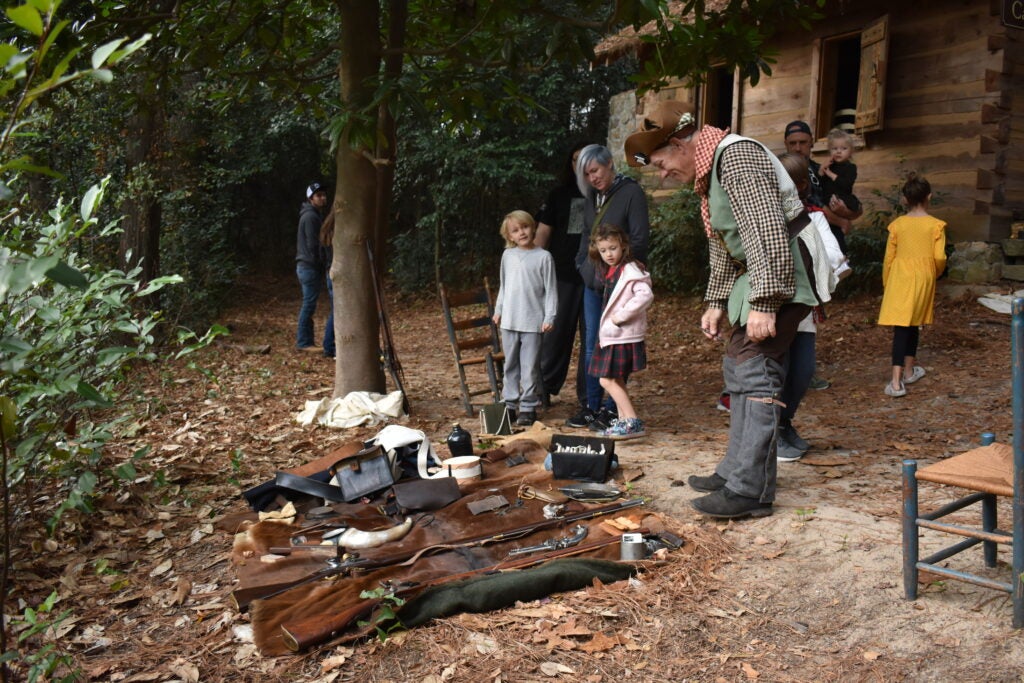
Featuring Mr. and Mrs. Santa Claus, enthusiastic blacksmiths and militia, young visitors wandered the grounds wide-eyed and smiling as they explored the park and its various special activities.
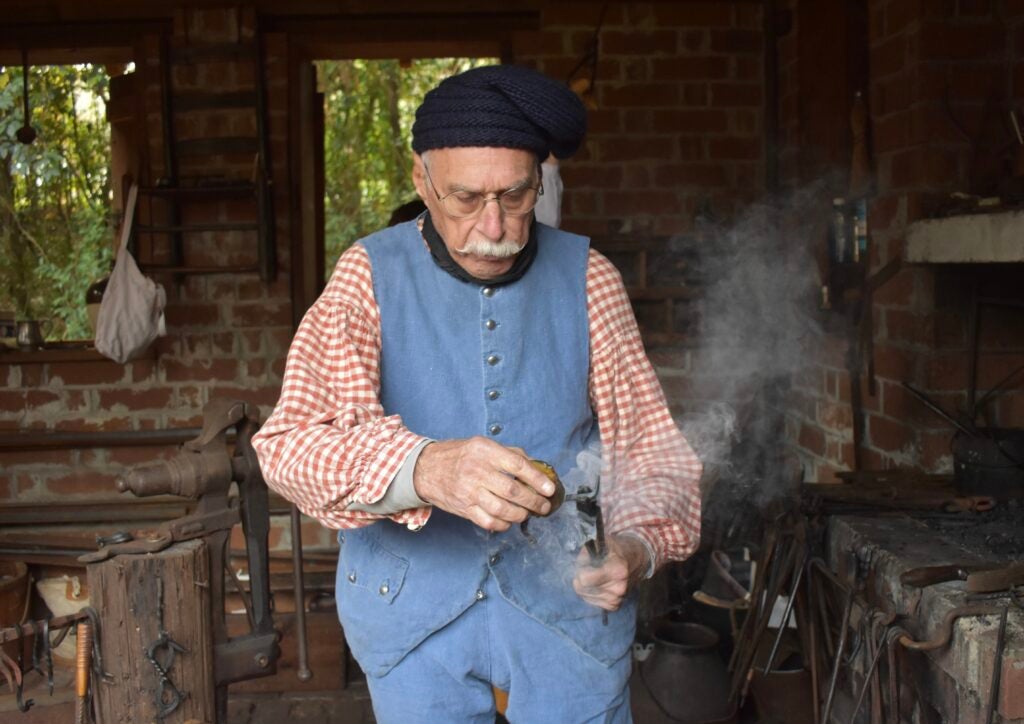
“Most of these people are from out of town and they’re here for the holidays,” said Living History Park coordinator and President of the Olde Towne Preservation Association Lynn Thompson. “I don’t see any kids walking around with cellphones, and it’s been really, really nice.”
With bunnies and goats also available for visitors to pet, Thompson said she believed families needed to have local attractions that encouraged children to step away from electronics and enjoy the outdoors.
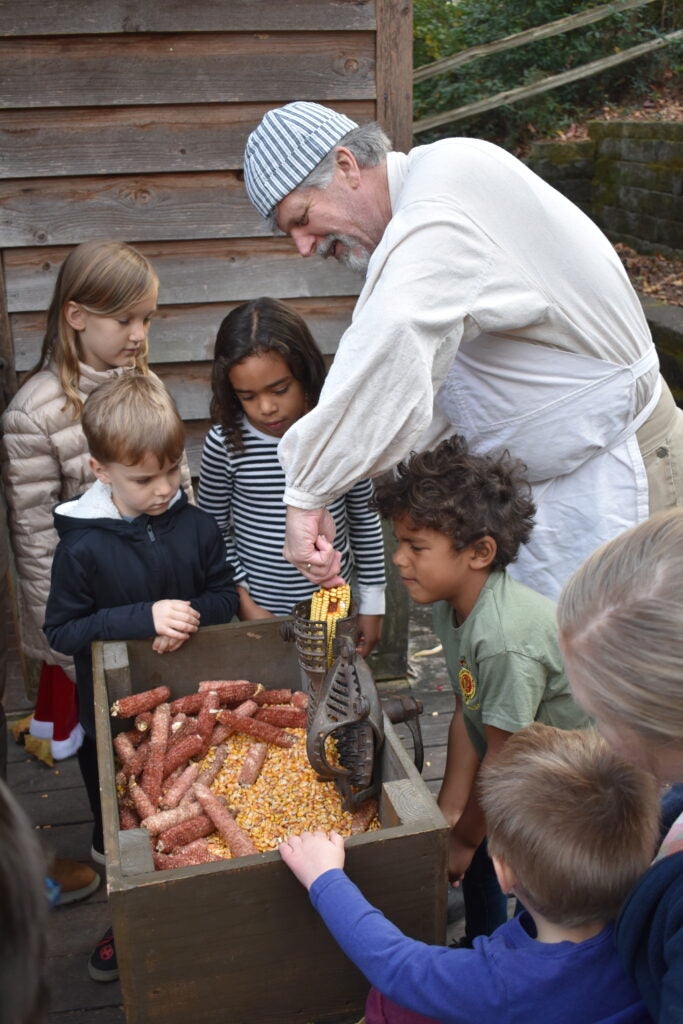
“It’s teaching the kids to love nature,” she said. “What’s a cell phone? Entertainment, and they don’t need it with all that we got going on. I think more people need to learn to stop and listen.”
Taking the time to stop and listen, attendees learned about several long processes of the colonial era and how ancestors navigated harsh winters. Through learning how to grind corn into flour, create colonial toys and hammer metal strands into hooks, children were also taught about the immense patience it took to create everything – from putting slow cooked food on the table to shaping flint stones into perfect pieces for shooting muskets.
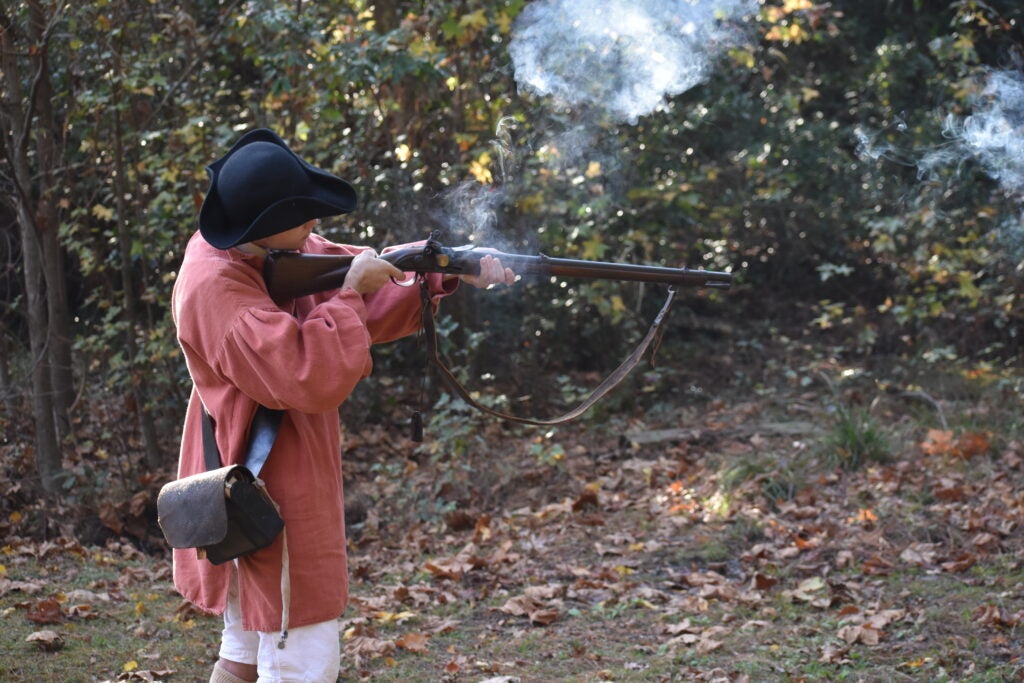
“This teaches you to appreciate the modern world in minute, small ways and in big ways,” said Paul Young, an experienced volunteer and lifelong colonial fan from Columbia, S.C. “They had to live off the land, and sometimes it was good, and other times, things were sparse.”
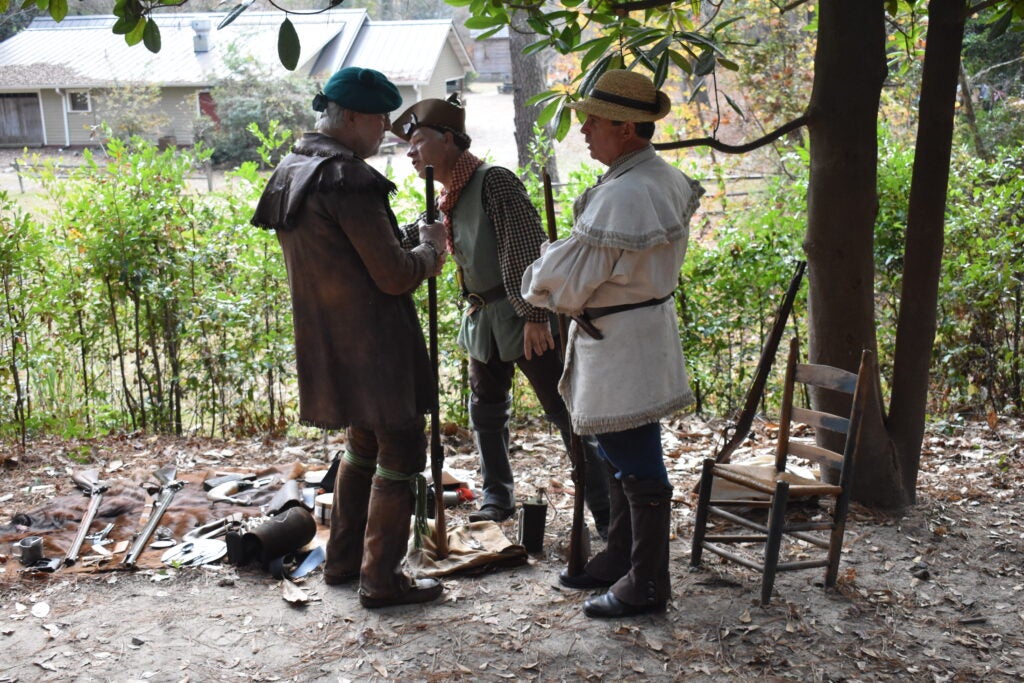
For Young, dedicating his spare time to educating others on forgotten aspects of history ensures that past events and mistakes do not happen again.
“I think it’s important for everyone to know their past,” he said. “Not just as individuals, but as a society, as a country and nation, to know, ‘How did we get here? What are we made of?’ All of that is our roots. Some good roots and some bad, but we need to know it, because if we forget it we’re destined to repeat it, and I wholly believe that.”
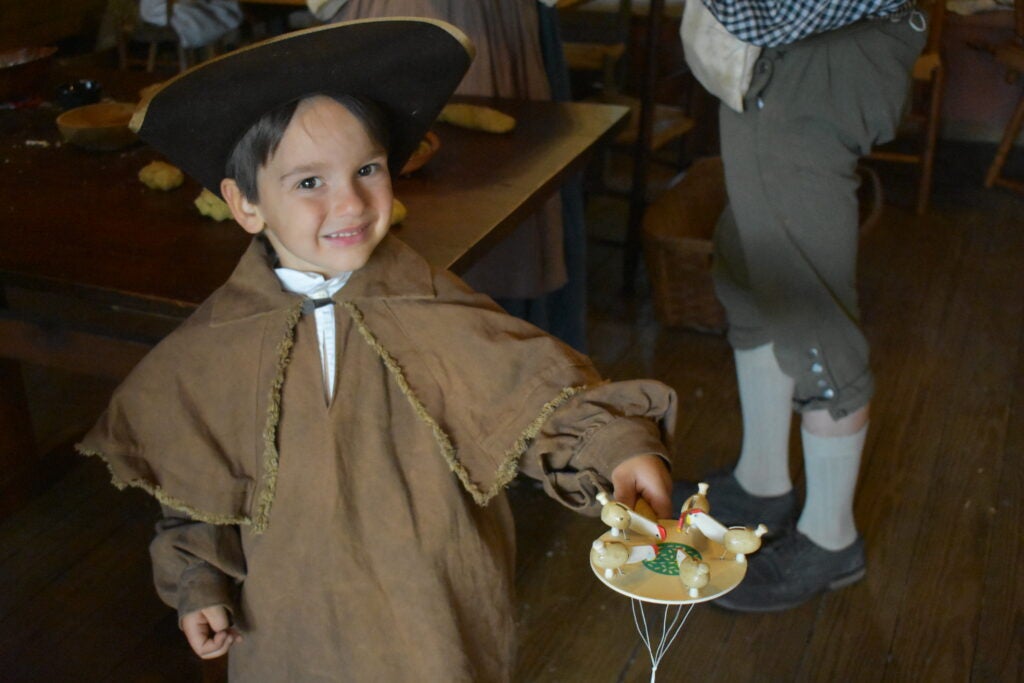
By focusing on the lifestyles of colonials and their day-to-day hardships, rather than the heavily emphasized and taught wars, Young said participants can teach others the incredible resiliency of those who came before.
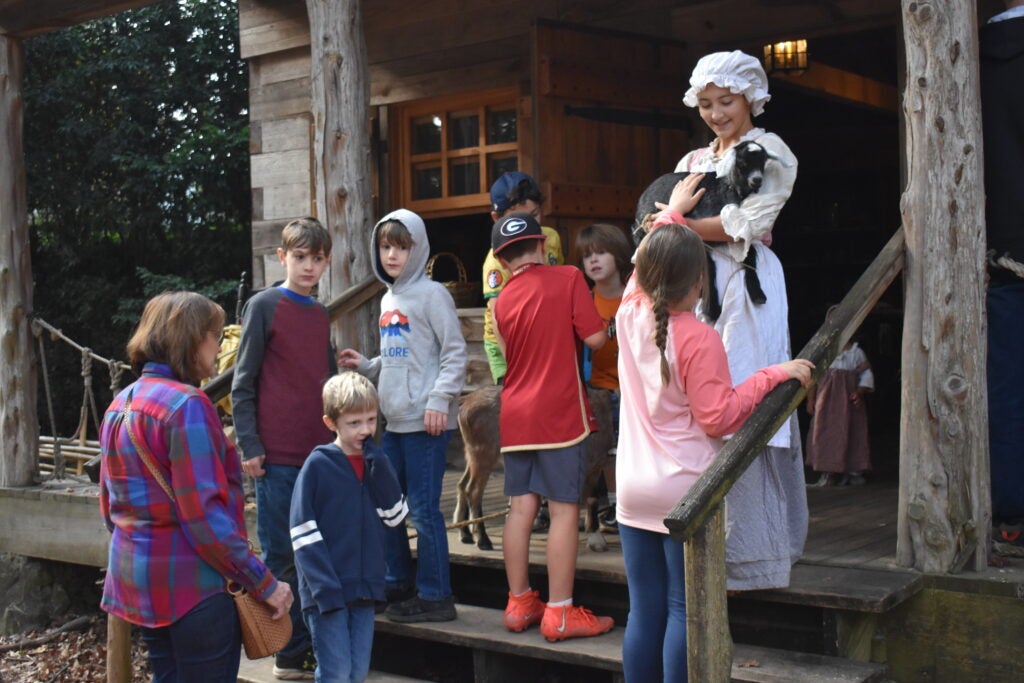
“The more we study, the more we realize that they knew a lot more than we give them credit for,” said Young. “Archaeology has only scratched a percent of two of what’s out there. We’re still learning about the past.”
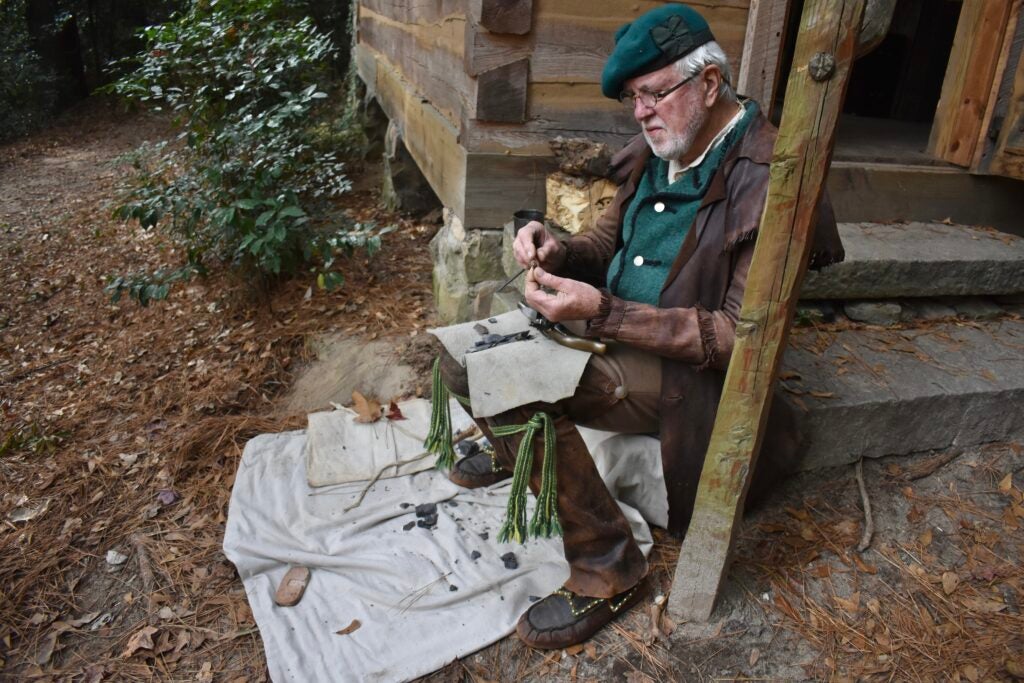
As children posed for photos with Santa and giggled at jumping goats as they passed, parents and grandparents could be seen enjoying the fresh air and grinning in amazement at colonial resistance and ingenuity.
Cheerful attendee and Augustan Nakita Labbe said she loved visiting Living History Park any chance she got in order to learn more about the past, and see how colonials managed everyday life.
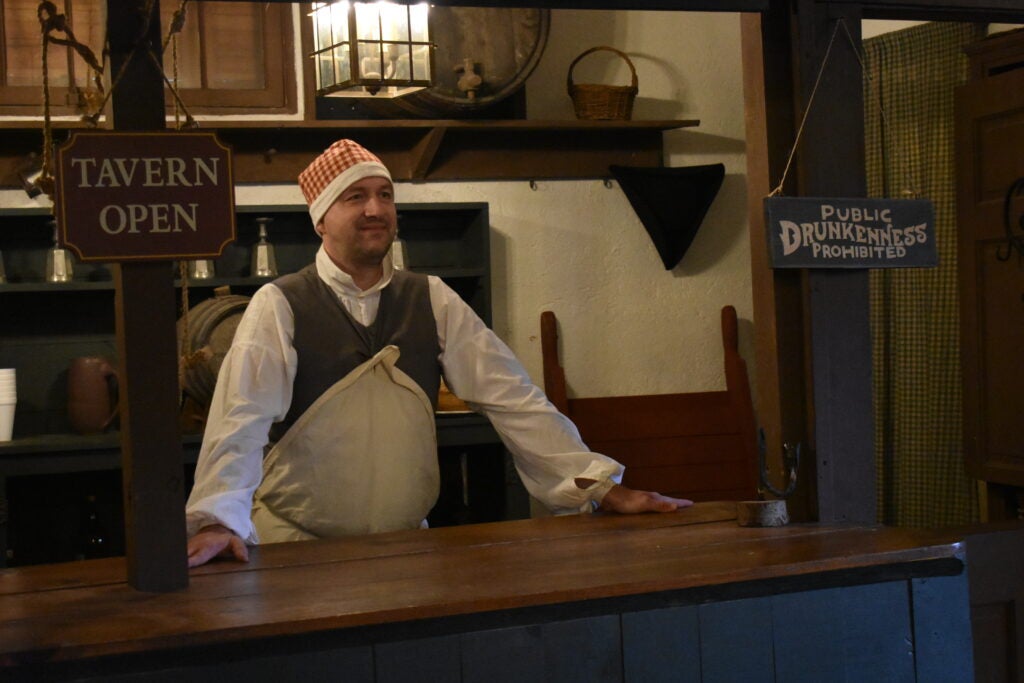
“I like that it’s educational and it’s good for the imagination,” she said. “It’s great to see the people involved and hear how seriously they take this.”
Labbe said she is an especially big fan of the location’s herb garden and might volunteer with friends in the near future to make the park even better for future visitors.
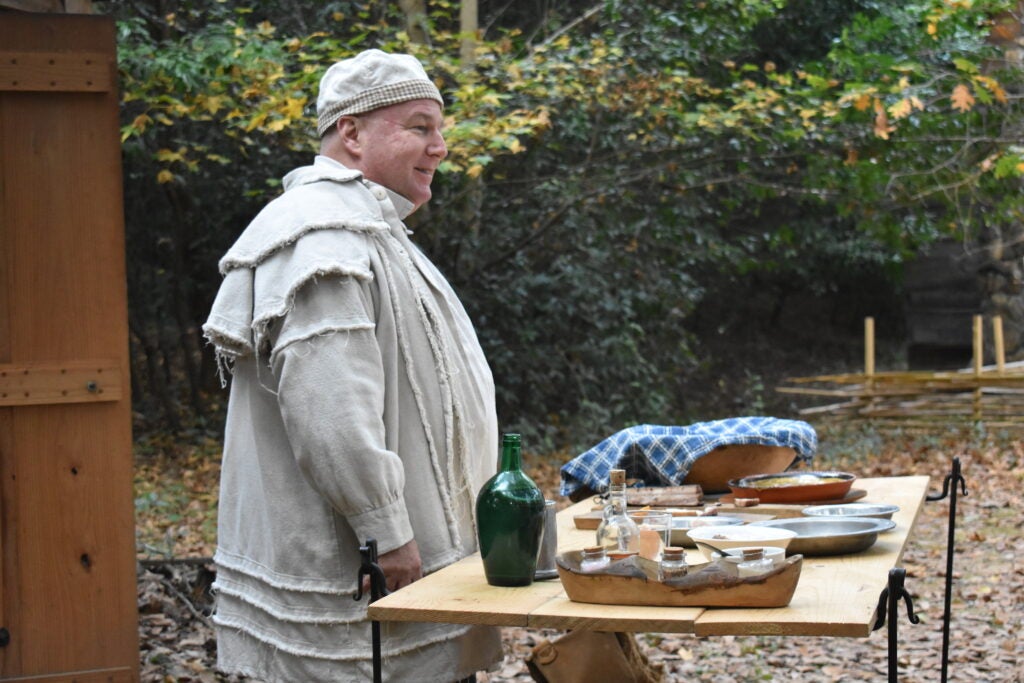
“I would tell people not to miss it. You have to come to enjoy it,” she said. “For someone that’s never been – come and step back in time. Go and learn the stresses of the past.”
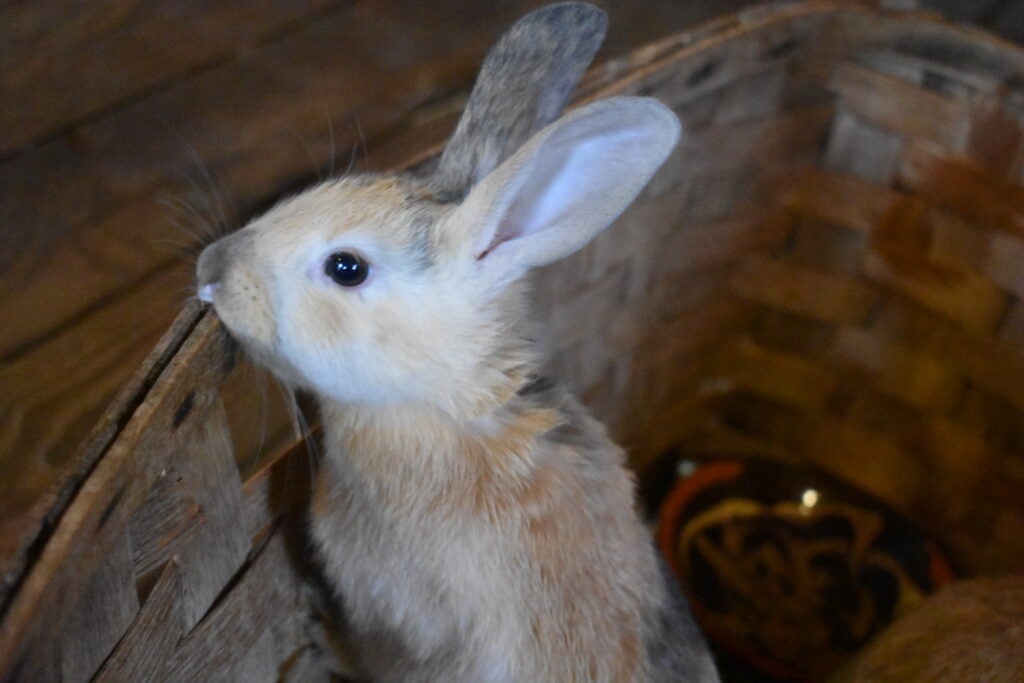
As the day wrapped up and the air became brisk, families and volunteers said their goodbyes and prepared to come back together next year for more community colonial-themed events.
“I hope families are learning to be thankful for living in the finest country in the world, and to appreciate our colonial past,” said Thompson. “That’s something we’re trying to teach here.”
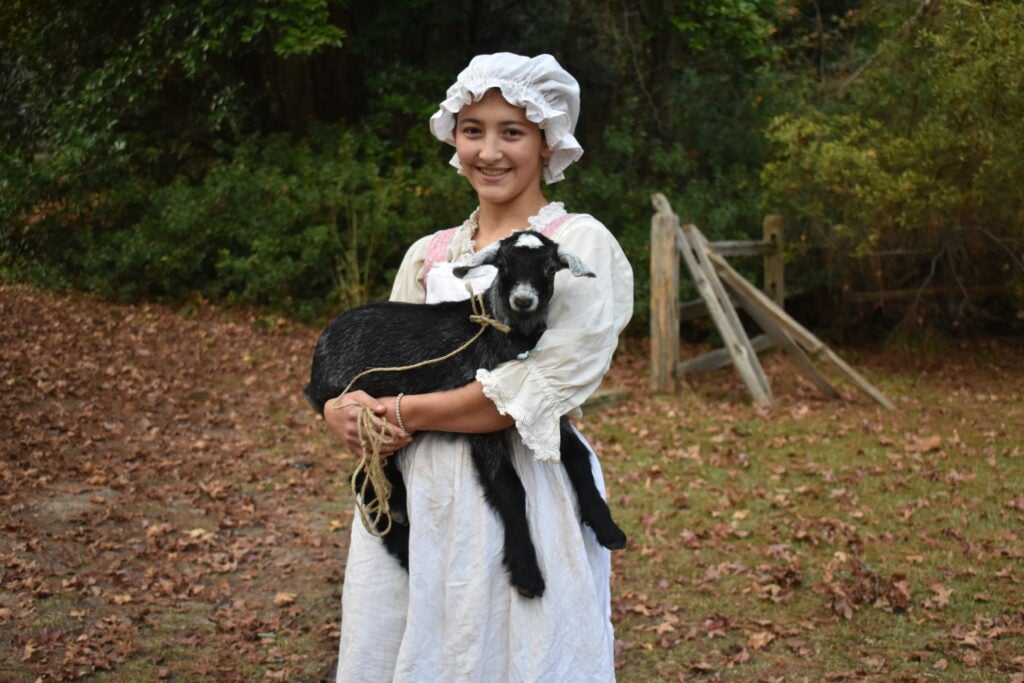
For more information about Living History Park or to donate, visit: www.colonialtimes.us

